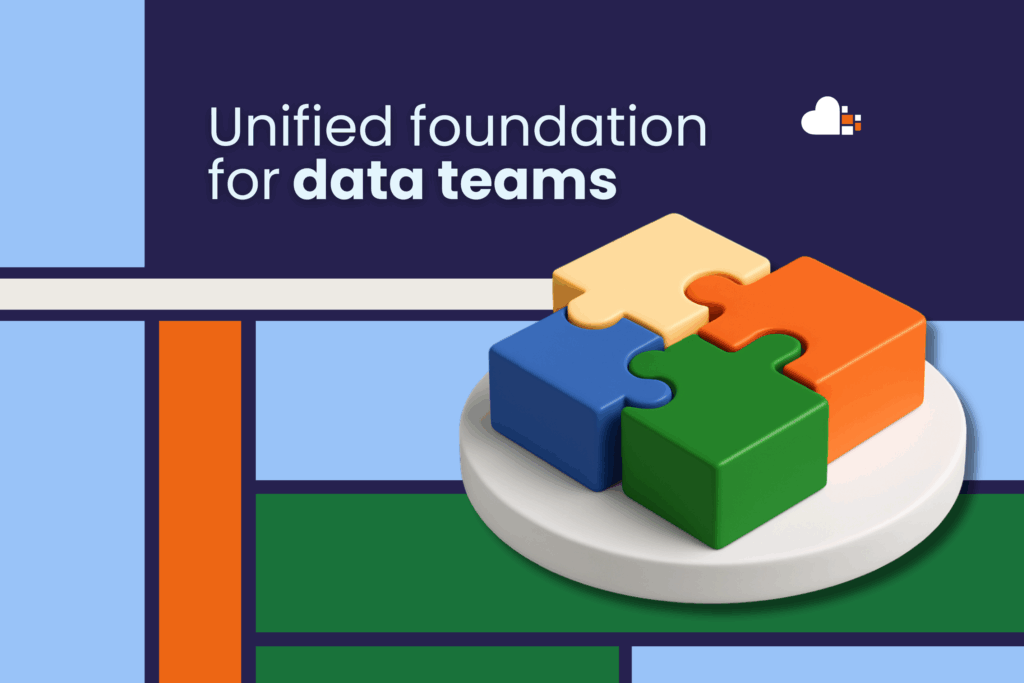In the previous articles, we explored roles and integration issues. In this final article in a series of three on the synergy between data engineering and data analytics, we explore forging a unified foundation for data teams.
Creating a strong foundation involves valuing both specialization and collaboration, not just structure. This mindset is important for addressing roles and challenges effectively.
In the face of the twin challenges of preserving deep specialization while encouraging interdisciplinary cooperation, establishing a unified foundation for data teams becomes paramount. Ideally, data teams are both integrated and autonomous.
This foundation acts as the bedrock for a data team, effectively bridging the gap between IT and business objectives. This setup helps data experts do well in their areas while also helping the organization reach its overall goals.
Core Principles
- Data Governance and Quality: Essential to any data-driven operation is a commitment to data governance and quality. This commitment entails clear policies for data collection, storage, processing, and sharing, underpinning data integrity, security, and privacy across projects.
- Collaborative Mindset: Fostering a culture of open communication and collaboration is crucial. Team members must feel comfortable sharing insights, asking questions, and providing feedback, fostering innovation and problem-solving effectiveness.
- Continuous Learning and Adaptability: The data field’s constant evolution demands a commitment to continuous learning, ensuring adaptability and leveraging the latest advancements to drive business value.
- Standardization of Tools and Processes: Creating consistent tools and methods for everyday tasks improves productivity and precision, giving a reliable foundation for innovation.
- Customer-Centric Approach: Maintaining focus on delivering actionable, impactful insights to the “customer,” whether external clients or other organizational departments, aligns data projects with strategic objectives.
Best Practices
- Regular Training Sessions: Support continuous learning with technical and soft skills training, ensuring team members are up to date and cohesive.
- Knowledge Sharing Platform: A centralized platform for sharing insights, challenges, and successes helps disseminate knowledge and foster community.
- Cross-Functional Meetings: These meetings are a place to discuss current projects. They also allow for sharing ideas between different roles. Additionally, they help identify areas where collaboration can improve project unity.
- Agile Methodologies: Adopting agile practices encourages flexibility, responsiveness, and a focus on delivering value in manageable increments, catering to evolving data project requirements.
Establishing a strong foundation combining technical proficiency with strategic insight is essential for data teams to navigate modern data environments effectively. This approach enables teams to address challenges with expertise, analyze data for decision-making, and adapt to evolving opportunities. A strong foundation improves team performance, supports efficient teamwork, and enables organizations to leverage data for growth and innovation.
The Future of Data Professions and Conclusion
Artificial intelligence (AI) is becoming a significant component in how we handle data. This means the jobs and skills needed in data work are changing. AI will probably take over entry level data tasks.
Data analysts will need to thoroughly understand business needs. Also, they must work closely with data engineers. This teamwork ensures that the data we use is accurate and works well.
The future of working with data will have its tough spots but also lots of chances for growth. To make the most of this, organizations should focus on two things. First, make sure everyone is exceptional at what they do. Second, create a workplace where people share ideas and learn from each other.
This kind of place makes teams stronger and helps organizations use data in new and powerful ways.
As things keep changing, it’s important for organizations to get ready for what’s coming. Think about how your data team works right now. How can you create an environment where everyone’s good at their job and works well together? This will help you face new challenges and grab new opportunities in the future.
At i-spark, we understand this like no other and are also fully committed to integrating AI into our processes, but also investing in creating the synergistic environment where every role can get the most out of the work, for our customers.
